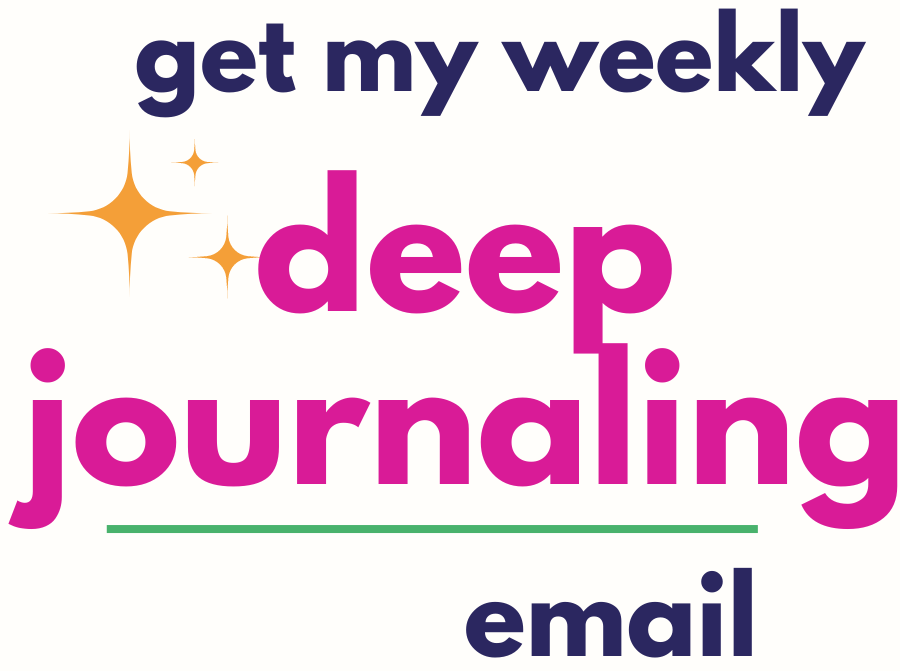Unsent letters are a powerful journaling exercise for gaining clarity, closure, and release. The act of committing words to the page in an organized way can illuminate your path and free-up head space, even when the letter is intended for your eyes only.
Here are a few ways to incorporate unsent letters into your journal writing.
1. Letter to the Editor
Firing off a scathing retort to your local newspaper used to be one of the only avenues of self-expression available to the average citizen. Now, thanks to the Internet, opinions are everywhere. Speaking your mind is as easy as clicking “publish” on a blog platform, or “reply to all” in your email.
Writing a persuasive argument to the press may be a dying art, but you can revive this tool by penning an unsent Letter to the Editor in your own defense. This is my favorite type of unsent letter, perhaps because it’s so much fun to write. In fact, the more fun you have writing it, the more freeing the process will be.
The point of this exercise is formulating a solid argument in support of yourself, your actions, your decisions, or your beliefs. You may find it easier to write the letter from someone else’s point of view; it’s often difficult to sing our own praises, even when we’re already fabulous.
In her book the Artist’s Way, Julia Cameron recommends writing a therapeutic letter from the point of view of your young, wounded artist: Mrs. Rosa smells and I can too write! “Inner child” therapy is not my cup of tea, but if that works for you, then use it.
2. Letter to the Dearly Departed
Letters to the dead are probably the most instinctual and frequently used form of unsent letter. The desire to continue sharing your life with someone after they’re gone is universal. Unsent letters are especially useful if the person died unexpectedly or if you were unable to communicate with them at the time. Writing it all out can provide the closure you desperately seek.
The phrase, “I wish I could tell you…” is a great prompt to start off the letter. Rewrite that phrase each time you find yourself pausing, and press onward until you’ve said everything you need to say.
My maternal grandmother was very special to me and died when I was young. Because of my age, I was shielded from her illness and subsequent death. I wasn’t allowed to visit her in the hospital or attend her funeral, so I lacked a sense of closure and felt unable to grieve. Her death was devastating to me as a child, and writing letters to her helped me enormously. I still write to her, and in some ways, I feel our relationship is even more profound than when I was small.
Poet Donald Hall lost his wife to leukemia and found solace in letter writing after she died. He describes in heart-rending detail how he stopped addressing his wife as you and started writing she. “It was horrible, inevitable, and necessary,” he writes. If you have a quiet hour, I highly recommend listening to him read passages from his book Without on This American Life. It’s a beautiful testament to the power of healing through letter writing.
3. Letter to Your Future Self
My journals started largely as a collection of letters written to my adult self many years in the future, when I assumed I’d be dealing with teens of my own. I was certain I’d need some reminders, since my parents had obviously forgotten what it was like to be thirteen. This format was inspired by Carol Snyder’s novel, Memo: to Myself When I Have a Teenaged Kid.
We do have built-in forgetters, so if you hold a gem of knowledge that could benefit yourself in the future, by all means put it in writing. Even if you don’t use it in the years to come, just enjoy speculating on what your life will look like a decade from now.
I repeatedly write threatening letters to myself warning not to cut bangs, regardless of whatever hair make-over kick I’m on in the future. “You’ll regret cutting bangs,” I write urgently. “No matter what, resist the tempation and do not cut bangs!” And yet every time my hair finally grows out from the last fiasco, I’m at the salon demanding bangs.
Some people never learn. But you’re probably smarter than me.
4. Letter to Prepare for a Conversation
I don’t know about you, but heated verbal confrontations fall right after “root canals without Novocain” on my list of enjoyable activities. But it’s a necessary evil. Over time, I’ve read a million self help books and enrolled in conflict resolution seminars, facilitation courses, relationship communication workshops, and Toastmasters meetings.
What I’ve found more useful than all these activities is letter writing in my journal.
Like playing Tetris, writing by hand moves a different part of your brain than speaking does. Or typing, for that matter. Writing a letter to the person you’re about to have a heated verbal confrontation centers you, helps you discover what’s really upsetting you, and builds confidence. It’s especially helpful if you need to have a conversation with someone who is difficult to talk to and they get defensive or interrupt you.
Interruption is one of my biggest pet peeves because it basically says, “What I need to say is infinitely more important than what you’re in the process of saying right now.” When I’m interrupted, I lose my train of thought. I get stuck. I shut down. But if I’ve written out all my feelings in a letter beforehand, I know exactly what point I’m trying to make.
The phrase I start most of my letters with is, “What I really want to tell you is…” I answer that, and each time I find myself pausing, I rewrite that phrase again and continue.
If I can get into the free flow of words that comes when you let go during journal writing, my letter often takes a surprising turn and I discover that a different issue entirely is what’s really bothering me. Then I avoid the “burnt chicken fight” – a term my friend uses to describe the argument that starts about the burnt chicken, but is actually about trust, infidelity, money, or the socks on the living room floor.
Sometimes beginning your letter with the phrase, “If I could say anything – without consequence – I’d tell you…” can really open up your writing. Specifying without consequence allows you to bypass the barrier created by fear of backlash. Since the letter is only for you, there’s no tangible consequence – it’s just words on paper. Keeping that perspective allows you to fearlessly express necessary truths. Once you see how important the words are on the page, you may realize they need to be spoken – regardless of consequence.
Some Additional Ideas
There are many other situations when an unsent letter can provide clarity, closure, or release. Here are some other unsent letters you might try:
- Love letter
- Letter of apology
- Letter to be opened on a future date
- Expression of gratitude
- Letter to an infant
You are limited only by your imagination. Next time you’re dreading a conversation, grappling with a difficult decision, or lacking an outlet for your defense, try the unsent letter exercise. You’ll gain clarity and save yourself a stamp.




